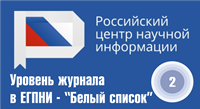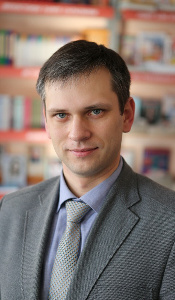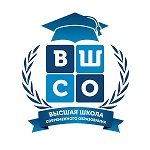ОГРАНИЧЕННОСТЬ ТЕХНОМОРФНЫХ МОДЕЛЕЙ ОБУЧЕНИЯ И ИСКУССТВЕННЫХ ИНТЕЛЛЕКТУАЛЬНЫХ МЕНТОРОВ НА ЗАНЯТИЯХ ПО ИНОСТРАННОМУ ЯЗЫКУ В ВУЗЕ
Аннотация
Обоснование. Рост популярности цифровых технологий и их стремительное проникновение во все области образования не всегда сопровождаются изучением потенциальных негативных последствий этих процессов на сознание и духовно-нравственную сферу субъектов образовательного процесса. По нашей гипотезе избыточное и педагогически необоснованное увлечение этими технологиями может привести к роботизации и деперсонализации самих подходов к обучению, когда вследствие копирования алгоритмов искусственных интеллектуальных менторов и участия в компьютерном тестировании у студентов происходит упрощение моделей коммуникации, в том числе и на иностранном языке. В результате во всех видах их речевой деятельности происходит перенос внимания с логики, стилистического наполнения и нравственного содержания текстов на угадывание наиболее статистически вероятных сочетаний языковых единиц по аналогии с машинным обучением, что может привести к духовной и интеллектуальной деградации выпускников вузов.
Цель – спрогнозировать потенциальные риски глубокой трансформации человеческого сознания и его возможной роботизации при использовании в процессе обучения техноморфных методов и интенсивной коммуникации с искусственным интеллектом.
Материалы и методы. Учитывая теоретический характер проведенного исследования, были использованы методы анализа научной литературы, сравнения, наблюдения, дедукции и синтеза.
Результаты. Выделены сходства и различия человеческого мозга и нейросети. При этом авторы полагают, что человеческое мышление отличается от машинного своей психоэмоциональной стороной, целостностью восприятия, наличием морально-этических принципов, поэтому даже в учебных условиях машинные обучение и коммуникация не должны становиться преимущественными моделями для усвоения иностранного языка. Обоснована роль коммуникации на иностранном языке как взаимодействия преподавателя с обучающимися в формировании социального и эмоционального интеллекта обучающихся, который не может быть сформирован при использовании искусственного интеллекта как средства обучения, допускающего иногда незнание культуры, ошибочные и гражданственно опасные ответы.
EDN: LTKYYO
Скачивания
Литература
Список литературы
Волегжанина И.С. Перспективы использования искусственных интеллектуальных менторов в преподавании иностранного языка // Педагогический журнал. 2023. Т. 13. № 4А. С. 475-483.
Дзялошинский И.М. Когнитивные процессы человека и искусственный интеллект в контексте цифровой цивилизации: монография. Москва: Ай Пи Ар Медиа, 2022. 583 с.
Кащук С. М. Бервиаль Б. Особенности организации образовательного процесса в эпоху глобальной цифровизации: новые технологические вызовы и связанные с ними особенности обучения цифровых аборигенов // Иностранные языки в школе. 2021. № 9. С. 4-11.
Кузнецова Т.Г. Искусственный интеллект как инновационный компонент в реализации процесса обучения иностранному языку // Modern Science. 2022. № 1-2. С. 248-251.
Лавриненко И.Ю. Использование чат-ботов GPT в процессе обучения английскому языку в неязыковом вузе: теоретический аспект // Вестник Сибирского института бизнеса и информационных технологий. 2023. Т. 12. № 2. С. 18-25.
Ладутько Н.Ф., Матусевич О.А. Искусственный интеллект как ноу-хау в обучении иностранному языку студентов инженерно-технологического профиля // Инновационные технологии в образовательной деятельности. Материалы XXVI Международной научно-методической конференции. Нижний Новгород, 2024. С. 464-467.
Маниковская М.А. Идея личности как регулятивный принцип образовательного пространства. // Личность в образовательном пространстве: вариативность подходов к содержанию и технологиям психолого-педагогического сопровождения. Cборник научных трудов. Хабаровск, 2020. С. 283-286.
Маруневич О.В., Гампарцумов А.С. Педагогические основы применения искусственного интеллекта в обучении иностранному языку в техническом вузе. // На пересечении языков и культур. Актуальные вопросы гуманитарного знания. 2023. № 2 (26). С. 177-181.
Минязова Е.Р. Применение технологии искусственного интеллекта в персонализированном обучении иностранному языку // Проблемы современного образования. 2023. № 6. С. 212-223.
Одарюк И. В., Котляренко Ю. Ю. Анализ готовности преподавателей вузов к внедрению цифровых технологий в образовательный процесс (на основе опроса профессорско-преподавательского состава кафедры иностранных языков) // Самарский научный вестник. 2021. Т. 10. № 2. С. 294–298.
Островских И.Д., Муратова А.Д. Проблема машинного сознания Философия в системе «НТПО»: наука, технология, производство, образование. сборник материалов IV Всероссийской научной конференции с международным участием. Казань, 2022. С. 208-212.
Цифровизация и молодёжь. Материалы науч.-практ. конф. Москва. 15 апреля 2019 г. / Под науч. ред. А.А. Остапенко. М.: Фонд «Просветитель», 2019. – 54 с.
Чебунин А.В. Концепция личностного образования // Социально-культурные процессы в условиях интеграции и дезинтеграции. Материалы всероссийской научной конференции с международным участием. Ответственный редактор Д.Ш. Цырендоржиева. 2017. С. 208-210.
Черноштан О.Н. ЕГЭ как средство оценки эффективности изучения английского языка в современной российской школе // Труды Ростовского государственного университета путей сообщения. 2013. № 1. С. 156-160.
Черноштан О.Н. О некоторых негативных аспектах роли стандартизированного тестирования по европейским иностранным языкам в целостном процессе обучения в национальной системе высшего образования // Вестник педагогических наук. 2023. № 1. С. 45-51.
Черноштан О.Н. Кризис авторитета педагога в современном российском контексте. // Теория и методика современного учебно-воспитательного процесса. сборник научных трудов по материалам I Международной научно-практической конференции. Редакторы: Н.А. Краснова, Т.Н. Плесканюк. 2016. С. 16-20.
Шефиева Э. Ш., Исаева Т. Е. Использование искусственного интеллекта в образовательном процессе высших учебных заведений (на примере обучения иностранным языкам) // Общество: социология, психология, педагогика. 2020. № 10(78). С. 84–89.
Bervell B., Okoree Mireku D., Agyapong D. Modelling the antecedents of students’ satisfaction and continuous use intentions of an electronic appraisal portal system in higher education // Computers in Human Behavior Reports, 2024, Vol. 15, 100431. https://doi.org/10.1016/j.chbr.2024.100431
Chunpeng Zhai, Wibowo S. A systematic review on cross-culture, humor and empathy dimensions in conversational chatbots: the case of second language acquisition // Heliyon, 2022, vol. 8, iss. 12, e12056, https://doi.org/10.1016/j.heliyon.2022.e12056
Kil Hong Joo, Nam Hun Park. Teaching and Learning Model for Artificial Intelligence Education // Procedia Computer Science, 2024, no 239, pp. 226–233. https://doi.org/10.1016/j.procs.2024.06.166
Lee D., Arnold M., Srivastava A. et al. The impact of generative AI on higher education learning and teaching: A study of educators’ perspectives // Computers and Education: Artificial Intelligence, 2024, vol. 6, 00221, https://doi.org/10.1016/j.caeai.2024.100221
Shan Wang, Fang Wang et al. Artificial intelligence in education: A systematic literature review // Expert Systems with Applications, 2024, vol. 252, Part A, 124167. https://doi.org/10.1016/j.eswa.2024.124167
References
Volegzhanina, I.S. Perspectives of using artificial intellectual mentors in teaching a foreign language. Pedagogicheskij zhurnal [Pedagogical Journal]. 2023, vol. 13, iss. 4А, pp. 475-483.
Dzyaloshinsky, I.M. Human cognitive processes and artificial intelligence in the context of digital civilization: monograph. Moscow: IPR Media, 2022, 583 p.
Kashchuk S. M. Bervial B. Features of the organization of the educational process in the era of global digitalization: new technological challenges and related features of teaching digital natives. Foreign languages at school [Inostrannyye yazyki v shkole], 2021, no. 9, pp. 4-11.
Kuznetsova, T.G. Artificial intelligence as an innovative component in the implementation of the process of teaching a foreign language. Modern Science, 2022, vol. 1-2, pp. 248-251.
Lavrinenko, I.Yu. Use of GPT chatbots in the process of teaching English in a non-linguistic university: theoretical aspect. Vestnik Sibirskogo instituta biznesa i informacionnyh tekhnologij [Bulletin of the Siberian Institute of Business and Information Technologies], 2023, vol. 12, iss. 2, pp. 18-25.
Ladutko, N.F., Matusevich, O.A. Artificial intelligence as know-how in teaching foreign language to engineering and technology students. Innovacionnye tekhnologii v obrazovatel'noj deyatel'nosti. Materialy XXVI Mezhdunarodnoj nauchno-metodicheskoj konferencii [Innovative technologies in educational activity. Materials of XXVI International Scientific and Methodological Conference]. Nizhny Novgorod, 2024, pp. 464-467.
Manikovskaya, M.A. The idea of personality as a regulative principle of educational environment. Lichnost' v obrazovatel'nom prostranstve: variativnost' podhodov k soderzhaniyu i tekhnologiyam psihologo-pedagogicheskogo soprovozhdeniya. Sbornin nauchnyh trudov [Personality in the educational environment: variability of approaches to the content and technologies of psychological and pedagogical support. Collection of scientific papers]. Khabarovsk, 2020, pp. 283-286.
Marunevich, O.V., Gampartsumov, A.S. Pedagogical foundations of the application of artificial intelligence in teaching a foreign language in a technical university. Na peresechenii yazykov i kul'tur. Aktual'nye voprosy gumanitarnogo znaniya [At the intersection of languages and cultures. Current issues of humanitarian knowledge], 2023, vol. 2 (26), pp. 177-181.
Minyazova E.R. Application of artificial intelligence technology in personalized teaching of a foreign language. Problemy sovremennogo obrazovaniya [Problems of modern education], 2023, vol. 6, pp. 212-223.
Odariuk I. V., Kotliarenko Iu. Yu. Analysis of university teachers' readiness to implement digital technologies in the educational process (based on the survey of the teaching staff of the Department of Foreign Languages). Samarskij nauchnyj vestnik [Samara Scientific Bulletin], 2021, vol. 10, iss. 2, pp. 294-298.
Ostrovskikh I.D., Muratova A.D. Problem of machine consciousness Philosophy within the system “NTPO”: science, technology, production, education. Collection of materials of IV All-Russian scientific conference with international participation. Kazan, 2022, pp. 208-212.
Digitalization and youth. Materialy nauchno-prakticheskoj konferencii [Materials of the scientific and practical conference]. Moscow, 2019, April 15, 2019. Under the scientific editorship of A.A. Ostapenko. Moscow: Foundation “Illuminator”, 54 p.
Chebunin A.V. The concept of personal education. Social'no-kul'turnye processy v usloviyah integracii i dezintegracii. Materialy vserossijskoj nauchnoj konferencii s mezhdunarodnym uchastiem. [Socio-cultural processes in the conditions of integration and disintegration. Materials of the All-Russian scientific conference with international participation]. Editor D.Sh. Tsyrendorzhieva, 2017, pp. 208-210.
Chernoshtan O.N. USE as a means of assessing the effectiveness of English language learning in the modern Russian school. Trudy Rostovskogo gosudarstvennogo universiteta putej soobshcheniya [Proceedings of Rostov State Transport University], 2013, iss. 1, pp. 156-160.
Chernoshtan O.N. Some negative aspects of the role of standardized testing in European foreign languages in the holistic learning process in the national system of higher education. Vestnik pedagogicheskih nauk [Herald of Pedagogical Sciences], 2023, iss. 1, pp. 45-51.
Chernoshtan O.N. The crisis of teacher's authority in the modern Russian context. Teoriya i metodika sovremennogo uchebno-vospitatel'nogo processa. sbornik nauchnyh trudov po materialam I Mezhdunarodnoj nauchno-prakticheskoj konferencii [Theory and methodology of modern educational process. Collection of scientific papers of the materials of the I International scientific-practical conference]. Editors: N.A. Krasnova, T.N. Pleskanyuk, 2016, pp. 16-20.
Shefieva E. Sh., Isaeva T. E. The use of artificial intelligence in the educational process of higher educational institutions (using the example of teaching foreign languages). Obshchestvo: sociologiya, psihologiya, pedagogika [Society: sociology, psychology, pedagogy], 2020, iss. 10(78), pp. 84-89.
Bervell B., Okoree Mireku D., Agyapong D. Modelling the antecedents of students’ satisfaction and continuous use intentions of an electronic appraisal portal system in higher education. Computers in Human Behavior Reports, 2024, vol. 15, 100431. https://doi.org/10.1016/j.chbr.2024.100431
Chunpeng Zhai, Wibowo S. A systematic review on cross-culture, humor and empathy dimensions in conversational chatbots: the case of second language acquisition Heliyon, 2022, vol. 8, iss. 12, e12056. https://doi.org/10.1016/j.heliyon.2022.e12056
Kil Hong Joo, Nam Hun Park. Teaching and Learning Model for Artificial Intelligence Education. Procedia Computer Science, 2024, no 239, pp. 226–233. https://doi.org/10.1016/j.procs.2024.06.166
Lee D., Arnold M., Srivastava A. et al. The impact of generative AI on higher education learning and teaching: A study of educators’ perspectives. Computers and Education: Artificial Intelligence, 2024, vol. 6, 00221. https://doi.org/10.1016/j.caeai.2024.100221
Shan Wang, Fang Wang et al. Artificial intelligence in education: A systematic literature review. Expert Systems with Applications, 2024, vol. 252, Part A, 124167. https://doi.org/10.1016/j.eswa.2024.124167
Просмотров аннотации: 81
Copyright (c) 2024 Olga N. Chernoshtan, Tatiana E. Isaeva

Это произведение доступно по лицензии Creative Commons «Attribution-NonCommercial-NoDerivatives» («Атрибуция — Некоммерческое использование — Без производных произведений») 4.0 Всемирная.






































